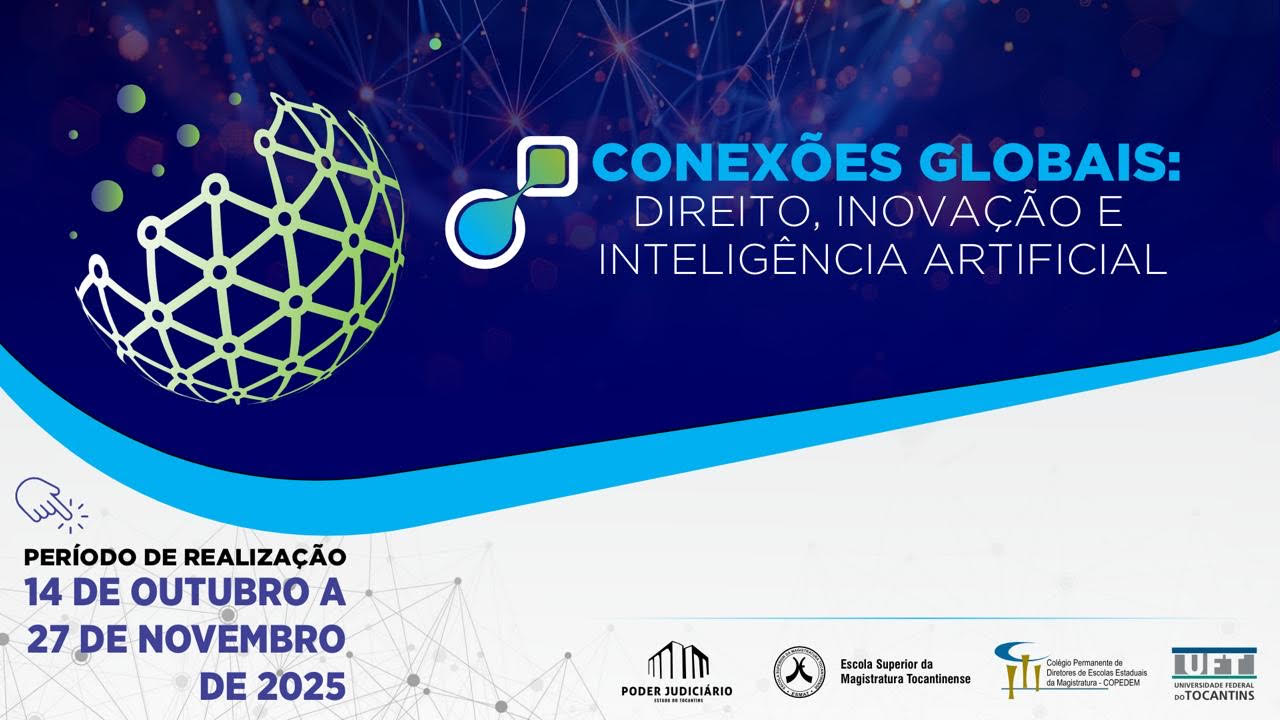
The institutional report of the academic mission on "Global Connections: Law, Innovation and Artificial Intelligence", held in October this year in the cities of Beijing, Shanghai, Macau and Shenzhen, China, is available. The document presents a complete overview of the activities developed during the international course promoted by the Superior School of the Judges of the State of Tocantins (Esmat), in partnership with the Permanent College of Directors of State Schools of the Magistracy (Copedem) and support from the Federal University of the state of Tocantins (UFT).
Idealized and coordinated by Justice Marco Villas Boas, general director of Esmat and president of Copedem, the course marked an unprecedented initiative among Brazilian judicial schools, with accreditation of the National School for Training and Improvement of Magistrates (Enfam) and focus on international cooperation, digital transformation and global legal education.
The report summarizes the main experiences and learning experienced by Brazilian magistrates, professors and researchers, in dialogue with academic and legal authorities of China.
Seminars and scientific diplomacy
The programming began in Beijing, on October 14th, with the Sino-Brazilian Academic Seminar on Law and Artificial Intelligence, held at the Normal University of Beijing. Organized in four thematic axes, use of AI in the Judiciary, application genealogy, regulation and reliability, the seminar was the stage for intense debates on ethics, algorithmic governance, digital justice and international cooperation.
During the opening session, Justice Marco Villas Boas presented the Dialogic Multiresponse Method (DMR), developed from theories of Ronald Dworkin and Daniel Kahneman, as an ethical and safe proposal for the use of AI in the Justice System. The executive director of ESMAT, Ana Beatriz Pretto, shared the experiences of the Interdisciplinary Laboratory of Artificial Intelligence (LIIARES), an unprecedented initiative among judicial schools in Brazil.
The seminar also had contributions from professors of the University of São Paulo (USP), the UFT (Federal University of the state of Tocantins) and the State Prosecution of Chaoyang, in addition to the active participation of Chinese researchers on topics such as data sovereignty, fintech regulation and criminal prediction algorithms.
Visit to the Brazilian Embassy in Beijing
Still in the Chinese capital, the delegation was received at the Brazilian Embassy, in a meeting with Ambassador Marcos Galvão. The meeting addressed the institutional relations between the two countries, with emphasis on the support of Brazilian diplomacy to the educational agenda of ESMAT and Copedem in China. On the occasion, the general director of ESMAT presented the ambassador with the Commemorative Medal for the 20th anniversary of Copedem, in recognition to the support of the mission.
Judicial dialogue in Macau
On the 20th, the delegation went to Macau, where it participated in the seminar on "International Dialogue between Macao and Brazil: About Law and Artificial Intelligence", based at the College of Law of the University of Macau. The meeting was attended by local professors and Brazilian magistrates, promoting a comparison between civil law systems and the Lusophone legal model in force in Macau.
Discussions revolved around criminal liability in automated systems, environmental governance by AI and facial recognition in court proceedings. At the end, Justice Marco presented the Copedem medal to Professor Tong Io Cheng, director of the College of Law at the University of Macau, as a way to celebrate the partnership.
Closing in Shenzhen
The final stage of the trip took place in Shenzhen, where the delegation visited the technology park of BYD, participating in an immersion focused on innovation and digital transformation in industry and public services. The city, considered the Chinese "Silicon Valley", served as inspiration for new technological practices applicable to the Brazilian Justice ecosystem.
To access the full report, click here.




